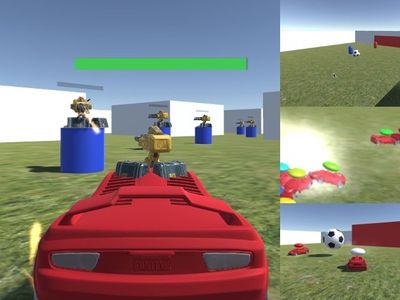The students will in project form design and implement a multi-agent team performing a task. The actual course content can vary based on which solutions the students choose to use.
The following areas will to a smaller or greater extent, dependent on the students' choices, be treated in the course:
- Cooperative path planning
- Cooperative task assignment
- Formation keeping
- Motion coordination
The course will also train the ability to manage, plan and participate in larger projects, assess existing solutions and their possible use, and work with existing code.
